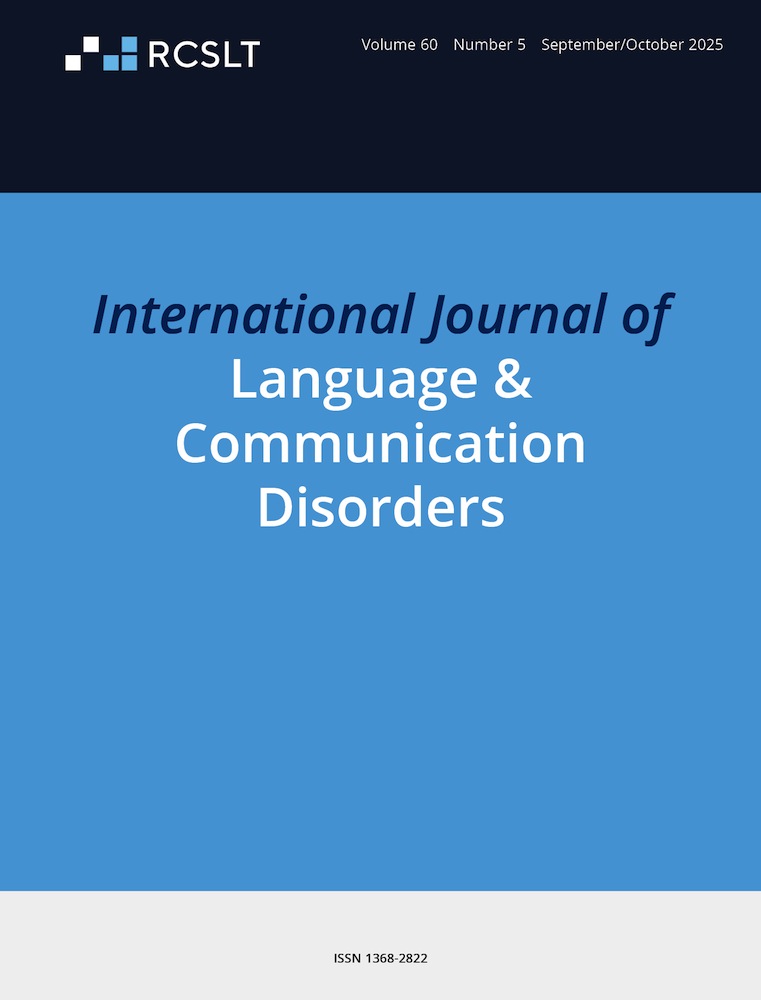Phonological awareness therapy and articulatory training approaches for children with phonological disorders: a comparative outcome study
Abstract
Sixty-one children, aged 3;6-5;0, with developmental phonological disorders (PD) participated in a study comparing the effects of metaphonologically (MET) or articulation-based (ART) therapy. Maturational effects were controlled for by the inclusion of 59 normally speaking control children of the same age range. Measures of phonological (speech) output and phonological awareness were taken before and after therapy for all subjects and at 3 months post-therapy for PD children. Results showed that PD children improved significantly in both phonological output and awareness skills across the intervention period compared with control children, but that there was no significant difference on the awareness measure between ART and MET groups. ART and MET groups differed from each other on one measure of speech improvement only, with the ART group making more change than the MET group on individual probe scores. Follow-up measures for both therapy groups indicated that there was little difference between the groups on phonological awareness change or speech development 3 months after intervention, though there was a trend for MET children to continue to make more long-term change than the ART group on one output measure. Additional analysis showed that there were generally few significant implications for outcome between PD children with good initial phonological awareness skills and those who initially had poor phonological awareness skills.




